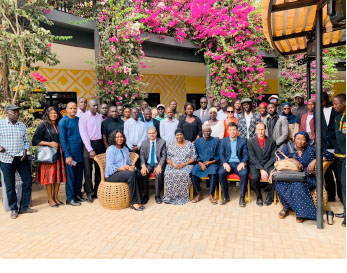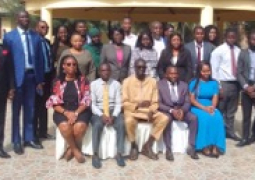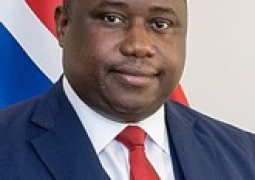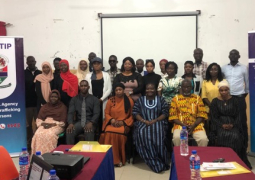
ISA is an action-oriented, member-driven and inter-governmental collaborative platform for increased deployment of solar energy technologies as a means of bringing energy access, ensuring energy security, and driving energy transition. Currently, 116 countries have signed the Framework Agreement of the ISA, out of which 94 countries have ratified.
Conceived as a joint effort by India and France to mobilise efforts against climate change by deploying solar energy solutions, the ISA aims to initiate dialogues of cooperation among stakeholders through these three interventions.
It was conceptualised on the sidelines of the 21st Conference of Parties (COP21) to the United Nations Framework Convention on Climate Change (UNFCCC) held in Paris in 2015.
Welcoming the participants, Dr. Adama Gassama-Jallow, national focal point for ISA in The Gambia, reminded that the Ministry is in the process of developing a policy and regulatory framework that would accelerate the deployment of solar energy in The Gambia with technical assistance from the ISA.
This technical support, she added, would be in two phases as phase one will assess the existing and emerging policies, legal and institutional issues related to the deployment of solar technology application in The Gambia.
“The second phase will be the development of a modern regulatory support framework for the viability and sustainability of solar energy in The Gambia.”
To that end, she expressed gratitude and appreciation to ISA for the continued and institutional support and for choosing The Gambia, among others, identified to serve as a benchmark for the pilot project.
She disclosed that as part of phase one of the policy and regulatory framework development, a consulting firm was recruited by ISA to carry out this important assignment.
In her introductory remarks and project overview, Onyi Iyizoba, International Solar Alliance, explained that ISA is an action-oriented, member-driven and inter-governmental organisation based in Germany with lots of interventions in Africa and beyond.
She disclosed that ISA currently has 118 signatory-member countries and that its mandate is strictly deployment of solar energy globally.
“Our strategy focus is on ensuring energy access in developing countries. Also, we help to ensure energy security in some of the more developed countries.”
She also spoke about some of their key strategic priority areas, which include, analytic development, advocacy and capacity building and programmatic support.
She spoke at length on the work of the intergovernmental organisation and their intervention areas both in Africa and beyond.
Presenting on Gambia’s solar energy sector regulatory framework and challenges, Joanis Holzigel from INENSUS, a Germany-based consulting and engineering company, explained that the whole idea is on improving the policy and regulatory environment for solar energy in The Gambia.
This, he said, will undoubtedly scale up the solar sector and accelerate growth from where it has been to another level, saying there are a lot of projects up and running in schools, health centres among others.
He also talked about their focus groups such as utility solar, solar for agriculture, mini-grids and solar rooftops, saying it is therefore important to review the existing regulatory policy and framework so as to identify areas that have challenges and need urgent addressing.
The event, he added, would also identify potential opportunities and gaps in scaling the solar energy sector in the country and come up with sets of recommendations to that effect.
PC Sharma also from ISA also spoke at the ceremony.
Read Other Articles In National News

NAO sub-regional forum on Financial, Compliance Audit for SAIs underway
Mar 16, 2023, 12:07 PM




